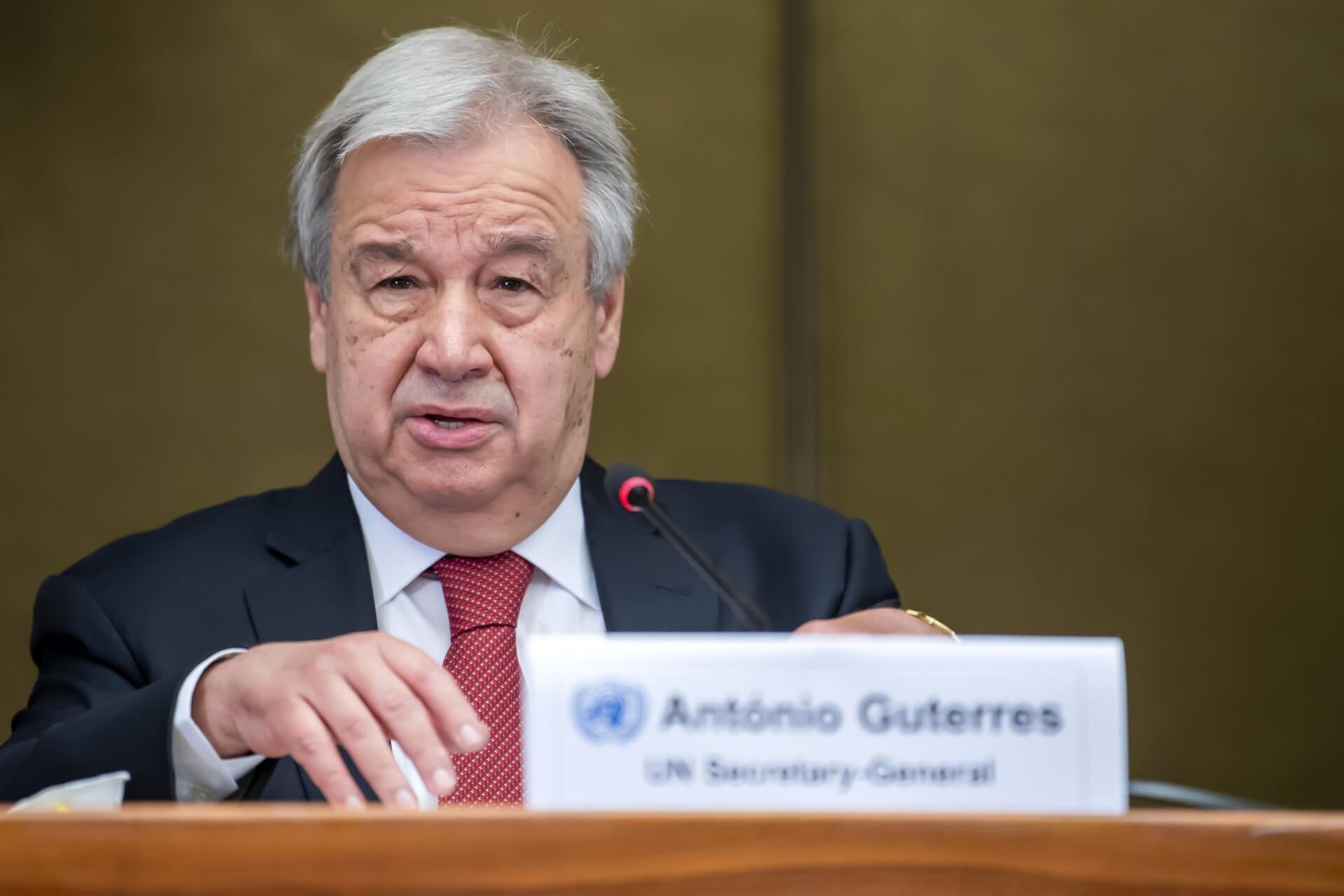United Nations (UN) Secretary-General António Guterres said on January 1 that he is “honoured to serve” as UN chief for a second term and vowed to lead the world body with “humility” and stressed that his focus for the year would be on “building trust and inspiring hope” across the world.
Saying that the future is being tested by numerous global crises, Guterres noted that “humanity can pass” these tests if “we commit to making 2022 a year of recovery for everyone.”
As UN chief, Guterres has monitored several parallel crises across the world, including conflicts, coups, and climate change. He was also in charge of the UN’s efforts to combat the spread of the coronavirus pandemic, which was by far the biggest challenge faced by countries.
Here’s a brief look at the UN Secretary-General’s take on the biggest events of 2021:
COVID-19:
Guterres has frequently stressed the importance of ensuring vaccine equity in order to eliminate the COVID-19 pandemic. “Ensuring equitable access to vaccines and treatments for everyone, everywhere, is the only way we will overcome this crisis,” Guterres tweeted last month. He added that only “true vaccine solidarity” could get rid of the pandemic.
In September, while addressing the 76th session of the UN General Assembly in New York, Guterres said that the world had failed an ethics test in its response to the pandemic. He said that a “lack of political will, selfishness and mistrust” has hampered the global response to COVID-19’s spread.
Calling this a “moral indictment of the state of our world,” Guterres urged the wealthiest countries to share their vaccine surpluses with the poorer parts of the world, especially to African countries, where 90% of people are still waiting for their first dose.
Moreover, Guterres has stressed that combating misinformation about vaccines is key to getting more people vaccinated. “Conspiracy theories, rumours, and lies continue to spread at a troubling speed amid the pandemic,” he tweeted on Monday, positing that it is important to “verify facts” before sharing information on COVID-19 online.
Conspiracy theories, rumors and lies continue to spread at a troubling speed amid the pandemic.
— António Guterres (@antonioguterres) January 2, 2022
We can all do our part to stop the spread of misinformation: #PledgeToPause and take time to verify facts before you share something online. pic.twitter.com/IbjfRCu0w9
Gender Equality
Guterres has been vocal about his criticism of discrimination and violence against women across the globe and has said that the COVID-19 pandemic has fuelled gender-based violence. “The pervasiveness of violence against women and girls has led to acquiescence that it is somehow inevitable or impossible to end. This is as outrageous and self-defeating as it is plain wrong,” he said in June.
He noted that women and children have suffered greatly as a result of the pandemic and have been the victims of serious crimes, including domestic violence, sexual abuse, trafficking, child marriage, female genital mutilation, and online harassment.
Furthermore, he said that even though lockdowns are essential in suppressing COVID-19, they can also “trap women with abusive partners.” In this respect, Guterres has called for making the “prevention and redress of violence against women a key part of national response plans for COVID-19.”
Climate Change:
Guterres has repeatedly stressed on the need for greater climate action. He has encouraged the younger generation to spearhead the fight against climate change moving into the future and has met with young climate activists on numerous occasions.
“Making peace with nature is the defining task of the 21st century. It must be the top, top priority for everyone, everywhere,” Guterres said last month. He noted that human activities “are at the root of” climate-related disasters across the world and only human actions can solve it.
Human rights:
2021 witnessed human rights abuses across the world and Guterres has raised concerns about the pandemic creating “new threats to human rights.” He noted on Human Rights Day on December 9 that the pandemic has made “exclusion and discrimination rampant” and led to record levels of poverty, hunger and inequality.
Against this backdrop, the Secretary-General has called on the international community to urgently address several major humanitarian crises. In October, Guterres said that Afghanistan’s situation was deteriorating and urged countries to provide humanitarian aid to the war-torn county. “Countries must unite and act urgently to secure stability in Afghanistan, and a better future for its people,” he said.
Similarly, he has also called for the provision of humanitarian aid to Ethiopia, Lebanon, Syria, Yemen, and Myanmar.
Furthermore, Guterres said in March that the UN was holding “serious negotiations” with China on gaining access to Xinjiang to verify reports that ethnic Uyghurs are being persecuted. However, he has rejected calls to boycott the 2022 Beijing Winter Olympics and said that he would attend the opening ceremony in February, even as countries continue to boycott the games.
A year of coups:
Military coups that ousted democratically elected governments were a major feature of 2021 and Guterres has addressed most of the military takeovers and urged a return to democracy in the affected countries.
For instance, Guterres condemned the Myanmar military junta’s ouster of the democratically elected government and its detention of leader Aung San Suu Kyi, and called for an immediate reversal of the coup. He has made similar demands to the junta leadership in Mali, Guinea, and Sudan.
Guterres was reappointed for a second term in June by the Security Council. He began his first term in January 2017.

